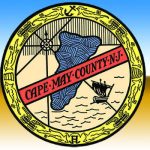TRENTON — Gov. Jon S. Corzine on March 25 signed legislation imposing a moratorium on harvesting horseshoe crabs in New Jersey. Fines for the continued harvesting of horseshoe crabs will be $10,000 for the first offense and $25,000 for each subsequent offense.
Horseshoe crab eggs are a significant source of food for shore birds known as red knots. Over-harvesting of horseshoe crabs has led to a diminished supply of food for the red knots and has brought the species to the brink of extinction.
“The effects of human behavior often have widespread, unintended consequences that reverberate across the animal kingdom for generations, like the ripple effect in a pond that started out as one small disturbance,” Corzine stated in a release. “It is with that in mind that we are here today to extend the moratorium on horseshoe crab harvesting, so as to reverse the endangerment and prevent the extinction of the red knot species and other shorebirds.”
“This moratorium will be held in place until the populations of both horseshoe crabs and red knots have returned to a level where they will be self sustaining as determined by the U.S. Fish and Wildlife service,” the governor added.
The legislation, A2260/S1331, was sponsored in the Assembly by Assemblymembers McKeon (D-Essex), Gusciora (D-Mercer), Fisher (D-Salem, Cumberland, Gloucester), Cohen (D-Union) and Stender (D-Middlesex, Somerset, Union). It was sponsored in the Senate by Senators Vitale (D-Middlesex) and Gordon (D-Bergen).
“The decline in New Jersey’s horseshoe crab population has left the red knot perched on the edge of extinction,” said Assemblyman McKeon (D-West Orange). “We simply cannot allow an entire species to be wiped out when the ability to halt the red knot’s decline is within our reach.”
“With today’s bill signing, New Jersey is fulfilling its sacred responsibility to undo years of damage to the centuries-old relationship between the State’s horseshoe crab population and the red knot shorebird,” said Senator Vitale, D-Middlesex.
“Over-fishing and lax oversight on the taking or horseshoe crabs in the 1990s has led to the starvation and near extinction of the red knot. Today, we are taking this opportunity to preserve the food chain, and allow the red knot a chance at survival.”
Horseshoe crab eggs provide the critical food source during the stopover of the red knot in New Jersey and Delaware during their annual migration from the Southern Hemisphere.
The Delaware Bay is the linchpin of the red knot’s spring migration because it is the center of the Western Hemisphere’s only population of horseshoe crabs.
Horseshoe crab eggs, unlike any other food resource, are quickly metabolized into fat, which allows red knots and other shorebirds to double their body weight in a brief period of about two to three weeks.
Consumption of these eggs is needed for the birds to gain sufficient weight to continue their migration north to breeding grounds in the Canadian Arctic.
This weight gain is critical for survival because the Delaware Bay is the last stop before red knots reach still-frozen arctic breeding grounds, where it takes one to three weeks for insect food to become available.
The fat reserves put on during a stopover along the Delaware Bay allow red knots to survive and continue courtship, mating and egg production until food becomes available.
Without a sufficient fat reserve, the consequence is loss of reproduction, or worse, mortality.
Court House – It didn't take long for Trump to step on the fresh dirt of Jimmy Carter's grave. He posted that the Dem's are "giddy" that the flag will be at half-mast during Trump's…








